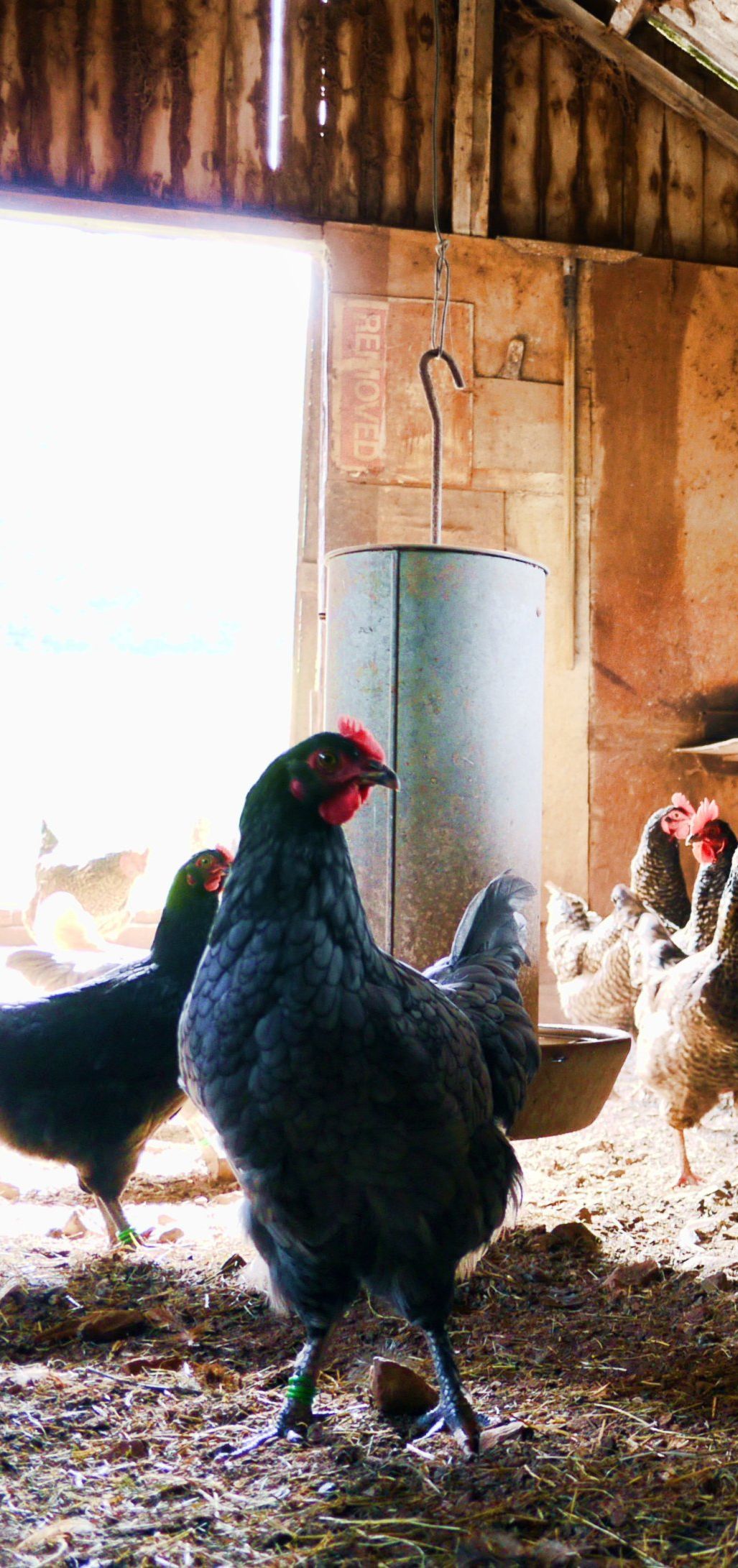Biochar for Chickens & Other Poultry
Adding biochar to chicken feed has numerous of benefits, including:
- Aiding digestion
- Reducing footpad disease
- Absorbing ammonia
Incorporating biochar into poultry farming practices is beneficial for the individual farm and also contributes to larger-scale impacts in terms of animal health and food security.
In the following sections, we review how biochar positively affects poultry farming and its various applications.
The science behind biochar for chickens & poultry
Biochar is a stable, carbon-rich form of charcoal produced through the heating of organic materials, such as plant biomass and agricultural residues, in a low-oxygen environment. This process converts waste into a valuable resource and captures carbon that would otherwise be released into the atmosphere.
In terms of its life cycle, biochar can last centuries because of its inability to degrade, consistently boosting soil quality. Biochar improves soil structure while also enhancing nutrient retention, contributing to a healthier soil ecosystem, and promoting the growth of beneficial microorganisms that support plant health.

Biochar reduces microbial pathogens
Since biochar has a high surface area and a porous structure, it’s an ideal habitat for beneficial microbes in the soil, which help break down organic matter and release nutrients essential for plant growth. By creating a healthy balance of beneficial microbes in chicken and poultry litter, biochar can suppress the growth of harmful pathogens, reducing their presence and protecting poultry from potential diseases.
What’s more, these pathogens can also contaminate the surrounding environment, posing risks to other livestock. Additionally, the potential for zoonotic transmission from pathogens residing in poultry droppings poses a risk for humans.
Biochar absorbs ammonia
Through a chemical reaction, biochar can absorb nitrogen from ammonia, a highly harmful gas. Doing so reduces the ammonia's toxicity, benefiting poultry and helping protect the environment from harmful emissions. In poultry operations, a decrease in ammonia levels can lead to improved bird comfort and welfare, fostering a more productive farming ecosystem.
Ammonia has implications for the environment at large as well. When released into the atmosphere, it can add to air pollution, forming fine particulate matter that can lead to respiratory problems in humans and animals alike. It can also accumulate in water bodies through runoff, causing nutrient pollution.
Biochar regulates moisture content
Another result of biochar’s porous structure, it’s able to effectively retain water, acting like a sponge by holding onto moisture that can be made available to plants and poultry. In poultry housing, the moisture regulation properties of biochar can help create a more comfortable environment for chickens, reducing stress levels and improving overall health.
Excessive moisture can lead to respiratory problems and an increased risk of diseases. By integrating biochar into bedding materials, farmers can effectively absorb excess moisture for a drier and more hygienic living space for the birds.
Biochar improves digestive health
The presence of biochar in the digestive system helps reduce the survival of pathogenic bacteria, which can contribute to healthier chickens and poultry with lower incidences of disease. Also, biochar's ability to bind mycotoxins and other harmful substances further protects birds from potential toxins in their diet.
Amazingly, once added to the feed, toxins already in the digestive system are eliminated. When the chicken’s digestive tract is cleansed, they achieve a healthier gut microbiome, which is key for peak nutrient absorption and digestion.
Applications for biochar with chickens & poultry
The versatility of biochar extends to various applications within poultry farming, benefiting both production efficiency and animal welfare.
Chicken feed
Biochar, specifically biochar bokashi, can be included in chicken feed to boost digestion and feed efficiency. The adsorptive properties of biochar allow it to trap mycotoxins, heavy metals, and other environmental contaminants effectively, preventing their absorption into the bloodstream of chickens.
As a result, chickens can exhibit improved growth rates and higher egg yields, contributing to increased profitability. Healthy chickens tend to enjoy better overall vitality and immune responses, which ultimately support long-term sustainability in poultry farming.
Litter & bedding
Because of biochar’s extremely high capacity to hold water, it helps to improve moisture retention in both litter and soil. In addition, it adsorbs both organic molecules, including amino acids and mineral compounds like ammonia. Since biochar absorbs water, the damaging microbial pathogens have nothing to thrive on, drastically reducing their presence in poultry environments.
Another byproduct of biochar’s moisture retention is its ability to adsorb nitrogen, thereby lowering ammonia emissions within poultry operations. After only a couple of days, a dramatic drop in coop odor is observed. Equally important, the decrease in ammonia contamination and moisture content lowers the risk of footpad disease.
Coop environment
Biochar is an invaluable addition to coop environments, offering many advantages that help both animal welfare and farm management practices. Sick chickens have implications for both public health and the economy, and making sure their living conditions are in good shape helps prevent disease breakouts.
When poultry flocks are affected by infectious diseases caused by things like E. coli and coccidia, the consequences ripple throughout the industry, leading to increased veterinary costs and loss of production.
Manure
Biochar’s ability to store nutrients and moisture also helps with manure degradation. The fertilizer quality of the manure is strengthened with the addition of biochar, and the odor is kept under control, creating a more pleasant environment.
Metzler’s involvement with biochar and poultry
Here at Metzler, we’re heavily involved in testing the benefits of biochar for poultry, leading the pack in innovative solutions for sustainable farming. We’re fortunate to offer highly stable biochar to those throughout the Mid-Atlantic region as well as one of Pennsylvania’s first industrial-scale pyrolysis systems.
We offer a range of products for sale, including:
- growCHAR: Our proprietary blend of carbon and nitrogen inputs
- pureCHAR: Made from local sawmill co-products
- earthCHAR: Blend of locally screened topsoil, growCHAR compost, and pureCHAR biochar
Additionally, we’re proud to conduct product trials in our Metzler Water Lab and are also involved with biochar for poultry trials.


Get the biochar you need for better chicken & poultry production
Now you know more about biochar and its positive effects on the production of chicken for many reasons, most notably proactive disease prevention by way of ammonia adsorption, high water retention, and improved microbial activity.
If you have any questions about biochar for chickens or would like to place an order, please
reach out today!
All Rights Reserved | Metzler Biochar








